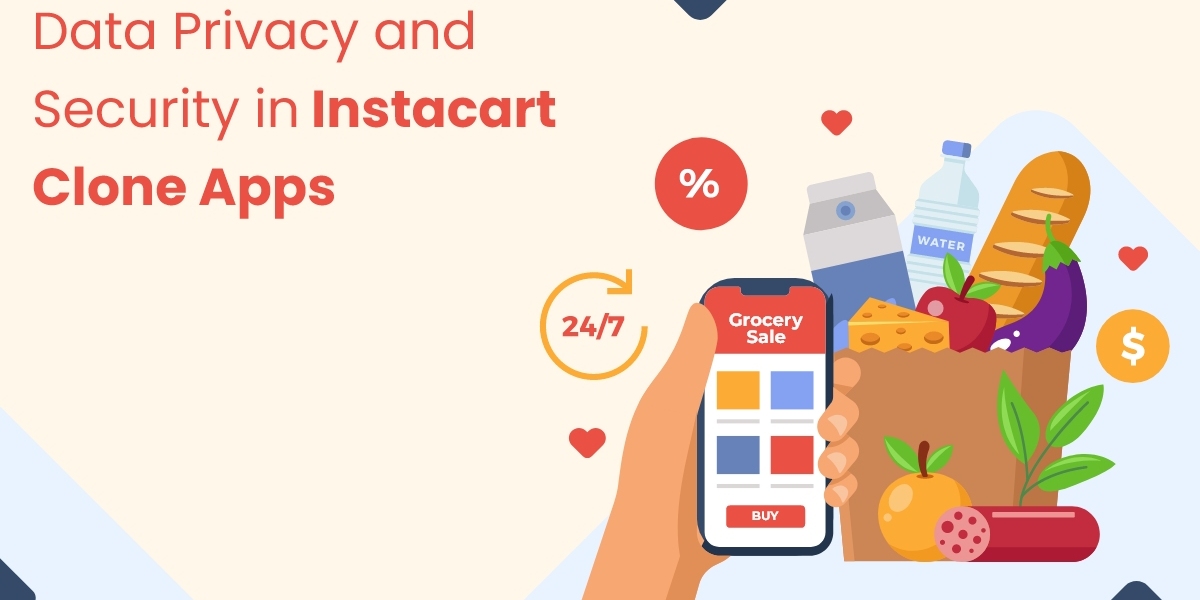With the increasing popularity of grocery delivery services, many developers are creating clone apps similar to Instacart to meet the growing demand. However, one crucial aspect that cannot be overlooked in these apps is data privacy and security. In this article, we'll explore the essential practices and considerations for ensuring data privacy and security in Instacart clone apps.
Understanding Data Privacy and Security
What is Data Privacy?
Data privacy refers to the handling and protection of sensitive information provided by users. It involves ensuring that personal data is collected, stored, and shared responsibly, respecting user consent and legal requirements.
What is Data Security?
Data security encompasses the measures taken to protect digital information from unauthorized access, corruption, or theft throughout its lifecycle. This includes implementing robust encryption methods, secure storage solutions, and stringent access controls.
Importance of Data Privacy and Security in Grocery Delivery Apps
Protecting User Information
Grocery delivery apps collect a variety of personal data, including names, addresses, payment information, and shopping preferences. Protecting this information is crucial to maintain user trust and comply with legal obligations.
Preventing Data Breaches
Data breaches can have severe consequences, including financial losses, legal repercussions, and damage to the app's reputation. Ensuring strong security measures can help prevent unauthorized access and data leaks.
Legal Compliance
Various regulations, such as GDPR, CCPA, and HIPAA, mandate strict data privacy and security practices. Compliance with these laws is essential to avoid hefty fines and legal issues.
Key Security Measures for Instacart Clone Apps
End-to-End Encryption
Implementing end-to-end encryption ensures that data transmitted between users and the app’s servers remains secure and inaccessible to unauthorized parties. This is particularly important for protecting payment information and personal details.
Secure Payment Processing
Using trusted and PCI-compliant payment gateways for processing transactions adds an extra layer of security, ensuring that sensitive payment information is handled securely.
Two-factor authentication (2FA)
Enabling two-factor authentication (2FA) adds an additional security step for user login, significantly reducing the risk of unauthorized access.
Regular Security Audits
Conducting regular security audits helps identify and address potential vulnerabilities in the app’s infrastructure, ensuring that security measures are up-to-date and effective.
Data Privacy Practices for Instacart Clone Apps
User Consent and Transparency
Clearly communicate to users how their data will be used, and obtain explicit consent before collecting personal information. Providing transparent privacy policies helps build trust with users.
Data Minimization
Collect only the data that is necessary for the app’s functionality. Minimizing the amount of personal information stored reduces the risk of exposure in case of a breach.
Anonymization and Pseudonymization
Implementing techniques such as anonymization and pseudonymization can help protect user identities by replacing identifiable information with non-identifiable substitutes.
Secure Data Storage
Ensure that all user data is stored securely, using encryption and other security measures to prevent unauthorized access. Regularly update storage protocols to address new security threats.
Managing Third-Party Integrations
Vetting Third-Party Services
Many Instacart clone apps rely on third-party services for various functionalities, such as payment processing and location services. It’s essential to thoroughly vet these services for their security practices and data handling policies.
Data Sharing Agreements
Establish clear data-sharing agreements with third-party providers to ensure that they comply with your app’s data privacy and security standards.
Monitoring and Auditing
Regularly monitor and audit third-party services to ensure ongoing compliance with security and privacy standards. This can help identify and mitigate potential risks associated with third-party integrations.
User Education and Awareness
Privacy Policies and Terms of Service
Provide clear and concise privacy policies and terms of service to inform users about how their data will be used and protected. Make these documents easily accessible within the app.
Security Best Practices
Educate users on security best practices, such as creating strong passwords and recognizing phishing attempts. This can help users take an active role in protecting their data.
Incident Response Plan
Develop and communicate a clear incident response plan in case of a data breach. This should include steps for notifying affected users and mitigating the impact of the breach.
Conclusion
In the competitive landscape of grocery delivery services, ensuring robust data privacy and security in Instacart clone app is paramount. By implementing comprehensive security measures, adhering to data privacy best practices, and educating users, developers can build trust and provide a secure and reliable service. The focus on protecting user information not only safeguards the app from potential breaches and legal issues but also fosters a positive reputation and user loyalty. As technology and threats evolve, continuous vigilance and adaptation are key to maintaining a secure environment for both users and the app itself.









